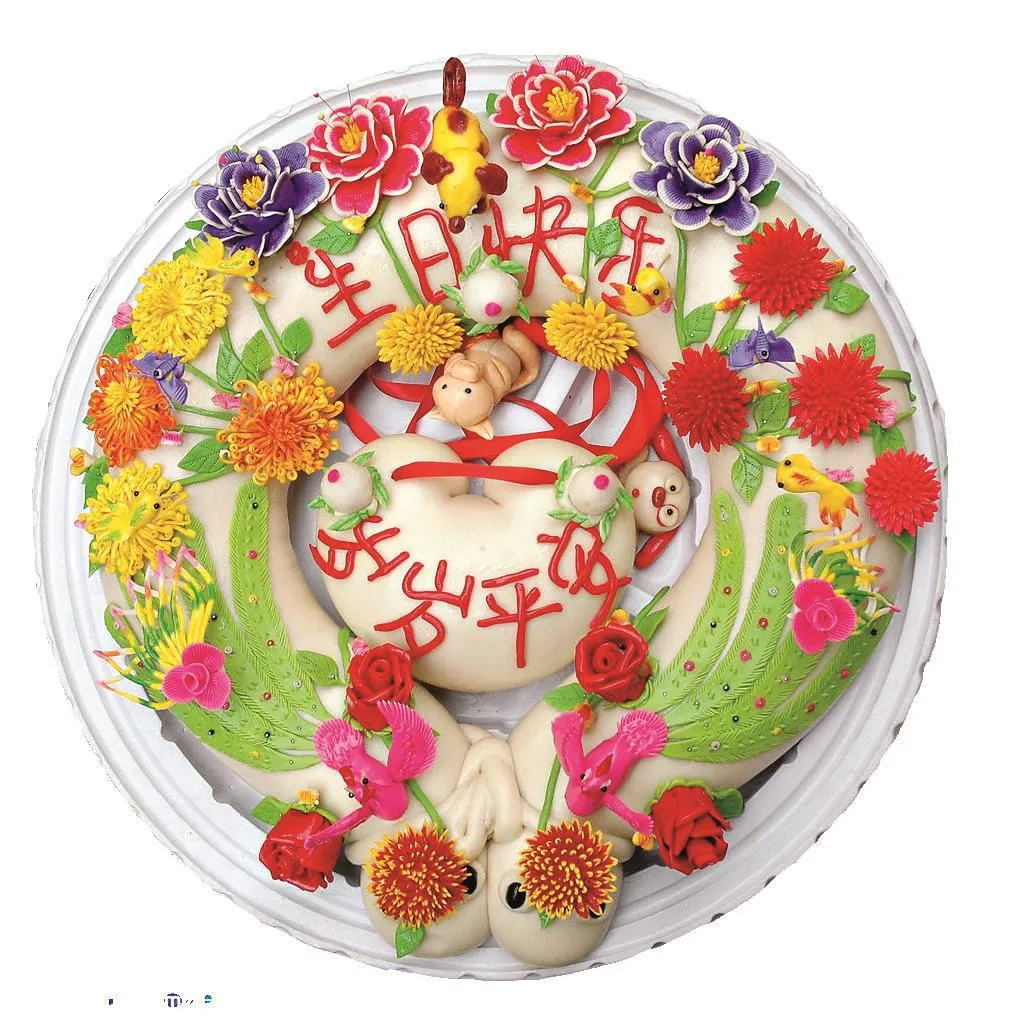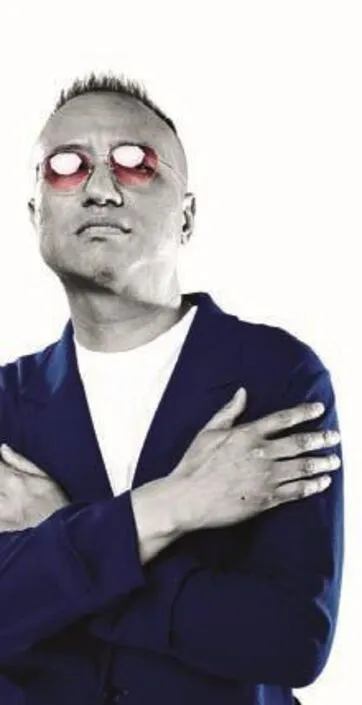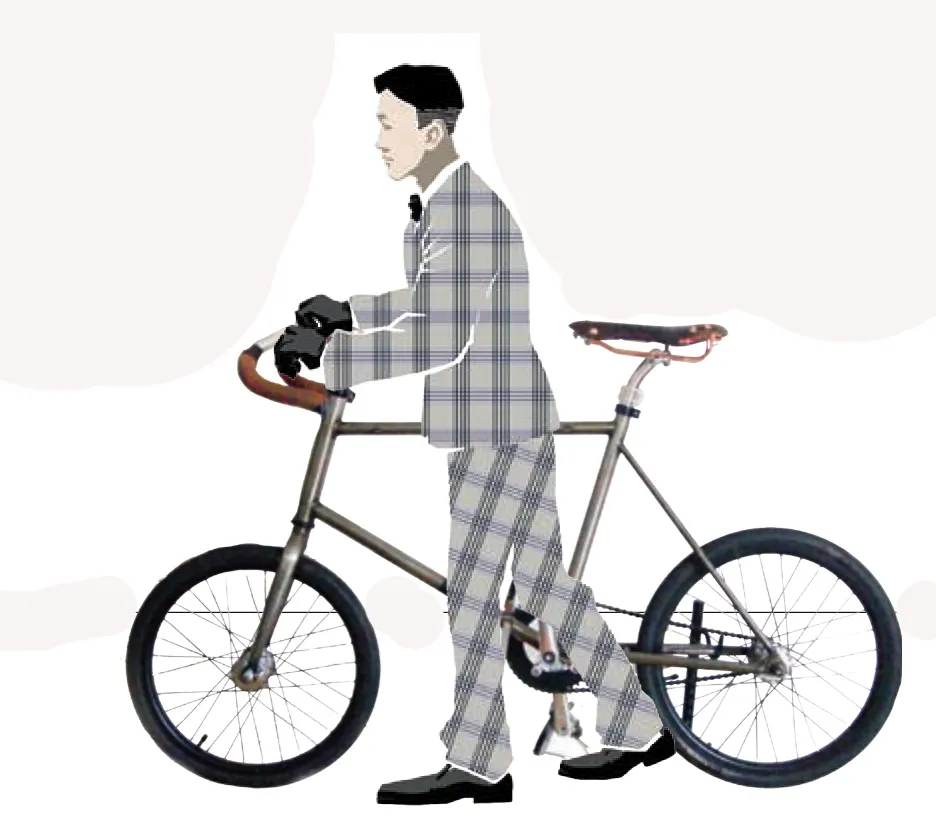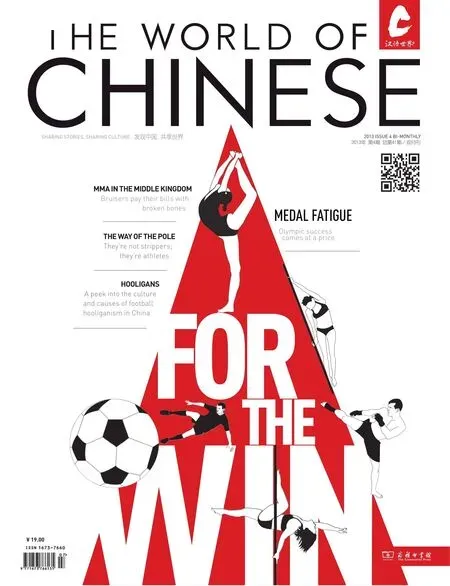MISHMASH
MISHMASH
STYLISH STEAMED BREAD
For many, steamed bread, can seem like the unpopular kid on the playground. Plain and white, it just fills your stomach. You don’t often see it in restaurants and you’re not likely to get cravings for it. But, the people of Shaanxi (陜西) and surrounding areas have a special place in their heart for this particular dish. It’s not just a dish for the everyday, it’s a medium for art on special occasions. 花饃 (huāmó), literally “flowery steam bread”, is the upgraded version of steamed bread. From a regular serving to as large as 60 centimeters in diameter and 10 kilograms in weight, huamo are molded, steamed and painted into a rich, multicolored cluster of plants, birds, fish and mythical creatures. Women of the house are often the artists behind these flour masterpieces, using their hands and whatever tools they can grab—scissors, knives and even combs—in the creation process. Beans, dates, and pepper seeds are used for decoration. There’s no shortage of huamo for special occasions. Engagements call for “l(fā)otus flower on fish”, a gift from the future mother-in-law to the bride-to-be, symbolizing that she is as pure as a lotus flower and as delicate as a fish. The man receives an awe-inspiring “tiger” from the woman’s family, a symbol of protecting their blushing bride. Believe it or not, some folks even look forward to their ornate birthday huamo. Today, most just choose to get these treats from a bakery in their generic form, but a few are trying to keep the art alive. - LIU JUE (劉玨)


BOOK REVIEW
Short story writer/director Zhu Wen (朱文) recently published a new collection of short stories entitled The Matchmaker, the Apprentice, and the Football Fan. Previously acclaimed for his entertaining tome of short stories I Love Dollars and Other Stories of China (《我愛美元》Wǒ ài Měiyuán), Zhu has again teemed up with translator Julia Lovell and Columbia University Press to bring us a new set of narratives, providing a glimpse into the chaotic, absurd, and primarily unfair nature of everyday Chinese life. Mixed within the darker themes surrounding today’s China of “Chinese socialism”, Zhu interjects his short stories with disturbing humor and intriguing antiheroes.
Throughout The Matchmaker, the Apprentice, and the Football Fan, Zhu uses his unbridled imagination to shows us around galling state-owned factories, disorderly campuses, and greets us with some who have fallen prey to Chinas economic miracle. In “The Football Fan”, we come across an undependable narrator, who may have, perchance, murdered an elderly neighbor for the sake of a few hundred yuan. Ten years after graduating during the protests of 1989, the perplexed antihero of “Reeducation” discovers he has been reprimanded and summoned back to his old college for a stint of political reeducation; ofcourse it’s alongside his taxing ex-girlfriend. Through the eyes of a young graduate who is pulled through the rings of a new job by his table-tennis-fanatic bosses, deprived of sleep by gambling-obsessed colleagues, and then filled with hard-boiled eggs by his overly enthusiastic landlady, Zhu demonstrates some of the irksome aspects of life in modern China with the “The Apprentice”.
Full of keen observational humor, the finicalities of relationships, and slices of sharp politics, Zhu’s stories fill us with insight into the aspects of greed that have spilled into society, opening a window to contemporary China. - TASHARNI JAMIESON
HIPSTER CRITICAL MASS ACHIEVED
Cycling to work in the crowded streets of Shanghai? Now you can do it in style. Tattoo artist and illustrator Liu Jing (劉京), 31, recently opened a vintage bike studio on 720 Yan’an West Road in Shanghai. Liu has been a bar manager, animation artist, photographer, and concert organizer in the past, but his new passion was inspired by “Tweed Run”, an annual London event where people wear traditional British cycling outfits, such as tweed, and ride vintage bicycles. According to Liu, there is no shortage of British retro enthusiasts in China, as proved by the first large scale Tweed Run this April in Beijing. Liu is certain that this event will inevitably hit Shanghai. When it comes to his bikes, he believes in the old, the new, and the handmade. “There has to be a story in it when you look at it,” says Liu regarding his bike design, personality of the 70s Chinese retro of a Feige (飛鴿) And, if you feel Mao suit or“and it has to reflect the owner.” For fans of the style, try the classic shape or Yongjiu (永久) bike. like dressing up, try a a green uniform. - L. J.

THE PINEAPPLE SCIENCE PRIZES
Did you know that counting money can help with pain? What makes chicken broth cooked in clay pots so delicious? Can relationships be broken down into equations?
All these questions and more are answered at “The Pineapple Science Prizes” (菠蘿科學獎 Bōluó Kēxuéjiǎng), China’s counterpart to the Ig Nobel Awards. The award, only two years old, is hosted by Guokr.com (a popular science trivia-type site) and the Zhejiang Science and Technology Museum. According to the official website:“We look for research and events that are imaginative and we give awards to them. We look for people who, although have no ambition to change the world, still retain their natural curiosity, despite their worldly experience.”
This year, the Psychology Prize went to research that argues Chinese people react faster to their bosses’ facial gestures than Westerners, and the Best Invention Prize went to an engineer who invented a mucous sucker that reduces pain from blowing your nose when you have a cold. The“Pineapple Me Prize”was given to a physics professor from Sichuan University who used mechanical theories to explain breaking bricks with the bare hand. China’s of ficial train ticket purchase website, 12306.cn, was awarded “The Pineapple U Prize”because its site was so inconvenient that it inspired companies to invent widgets and browsers with ticket-buying plug-ins. - GINGER HUANG (黃原竟)


